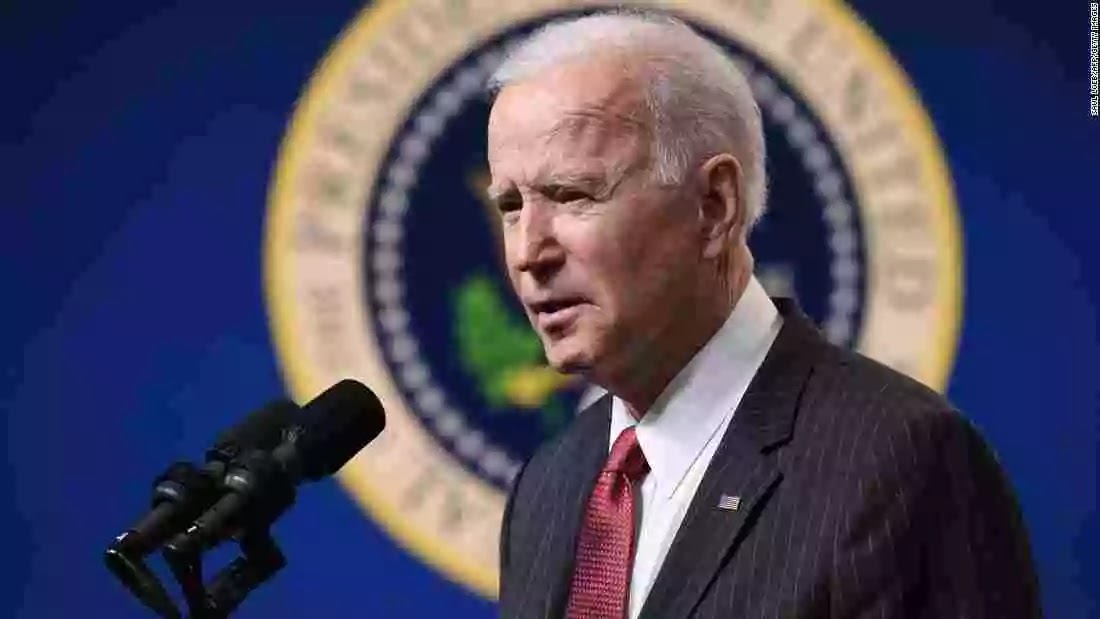The Biden administration communicated to New Delhi that it understands India's pharmaceutical requirements and further promised to give the matter due consideration, observing that the present difficulty in the export of critical raw materials needed in production of COVID-19 vaccines is mainly due to an Act that compels American companies to priorities domestic needs.
The President Joe Biden and Former President Donald Trump had invoked the
war-time Defence Production Act (DPA) that leaves US companies with no
other option but to give priority to the production of COVID-19 vaccines and
Personal Protective Equipment (PPEs) for domestic use to combat
the deadly pandemic in America, presently the worst-hit nation.
Among other things, the DPA, which was established in 1950, authorizes the US President to require businessmen to accept and prioritize contracts for items deemed necessary to protect the country, regardless of business losses.
The matter has received international attention in recent days after Adar Poonawalla, chief executive of the Serum Institute of India (SII), tagged President Biden in a tweet.
"Dear @POTUS, if we are truly united in overcoming the virus, on behalf of the non-US vaccine sector, I humbly request that you lift the ban on raw exports made outside the US so that vaccine production can grow significantly. Your management has details," Twitter said.
The Serum Institute of India is the world's largest producer of the COVID-19 vaccine. The US or India has not released the details of the raw material in question in the US.
In recent weeks, US Ambassador to India Taranjit Singh Sandhu has raised the issue with Biden's administration. During his meetings with American diplomats, India's top strategist demanded a smooth acquisition of COVID-19 drug production in India.
Also, officials from both sides are holding talks to reduce the delivery of sensitive goods, taking into account their increased needs in the US and India.
The U.S. side has made it clear that there are no export restrictions on such items and that domestic regulations prioritize the use of these policy-making devices in the US, sources familiar with PTI reports told Monday.
Sources told India's Press Trust that Biden's management had indicated to India that they understood India's needs and promised to look into the matter. U.S. officials, at these meetings, have approved a major framework for health cooperation in India and the US. It is believed that the US Ambassador to Delhi is also in contact with relevant Indian stakeholders.
The Indian ambassador to Washington continues to liaise with U.S. officials to find ways to reduce the cost of vaccine production, in line with shared commitments to strengthening India-US health partnerships, particularly in the context of COVID-19.
The Quad Vaccine Initiative, under which India will produce US-made drugs - Novovax and Johnson & Johnson - is a concrete example of US-India cooperation. A team of Vaccine Specialists, based in Quad, has begun work, sources said.
During a telephone conversation between US Secretary of State Antony Blinken and Foreign Minister Jaishankar on Monday, the two top strategists also discussed the coronavirus and how to deal with it.
Earlier in the day, the White House declined to comment on the ban on the export of COVID-19 items.
Asked about the Serum Institute of India's request for supplies, both Dr Anthony Fauci, Director at the National Institute of Allergy and Infectious Diseases and Dr Andy Slacitt, the co-counselor for COVID-19 at the White House said they had no response yet.
"I don't know, I'm sorry ... we can get back to you for that. I'm sure. But I don't have anything for you right now," said Dr. Fauci.
"Let me get back to you. Suffice it to say that we take the global threat posed by the epidemic very seriously. We have been a leader in COVAX funding, we have passed several goals in two countries, and we are looking forward to taking on all these complex issues, we will get back to you in detail," said Dr Slavitt. .
White House News Secretary Jen Psaki, when asked the same question during her daily news conference, referred to a recent WTO address by US Commerce Attorney Katherine Tai.
"The significant inequalities we find in access to vaccines between developed and developing countries are totally unacceptable. Extraordinary times require extreme leadership, communication and expertise," he said.
We are indeed working with WTO members in the global response to COVID. That includes a number of things, whether it is a USD 4 billion commitment to COVAX or discussions on how we can help and assist countries most in need.
"We are focused on finding the most effective measures to help control the epidemic. We have no choice but to go through the next steps or timeline, but we are considering a number of options," Psaki said.
Related to S Jaishankar and Anthony Blinken
EAM Jaishankar, US Secretary of State Blinken discusses security issues in Afghanistan, Myanmar
Kamal Sanas, a 56-year-old sugarcane grower, receives the COVISHIELD coronavirus (COVID-19) vaccine developed by the Serum Institute of India, in a primary health care facility in the Limb area of the western Safara region.








